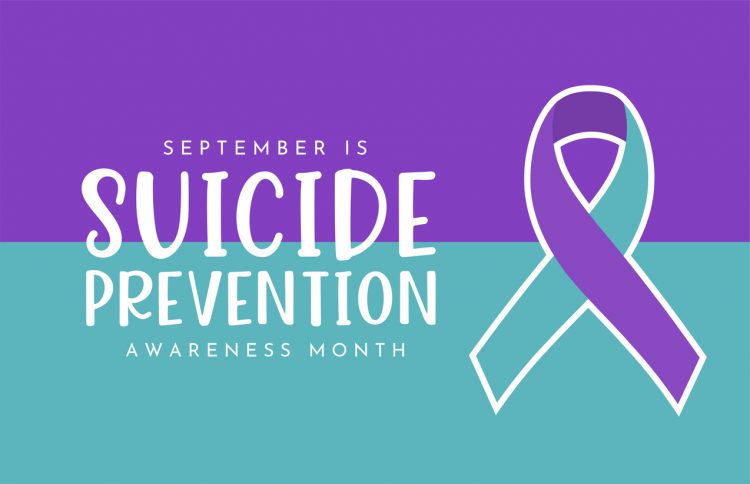Iffatt Habibah, Alice Lin, Jonathan Too
September is Suicide Prevention Awareness Month. Suicide is unfortunately caused by a decrease in mental health and a struggle with mental illness. It’s important for individuals, especially those who are younger, to understand and know the signs and symptoms of a decline in mental health and signs of suicide. In order to prevent and spread awareness, knowledge is key.
What is Mental Health and Mental Illness?
The Earth’s population is 7.8 billion. More than 700,000 people die from suicide each year. As September ends, it is important to acknowledge and be aware of Suicide Prevention Awareness Month. Mental health is the internal state of a person. It refers to our self-esteem, emotions, psychology, spirituality, and social life. Good mental health is to have balance in your life. A mentally healthy person should be able to calmly address everyday stress and give themselves time to relax. Mental illness is caused by consistent bad mental health. Some mental health disorders are the following:
- Anxiety disorder: This is an umbrella term that includes multiple mental illnesses to refer to an extreme and recurring anxiety about certain subjects. It can cause stress and is difficult in many everyday activities. An anxiety disorder can cause avoidance or panic. Anxiety can cause aches, trouble sleeping, feeling restless, etc.
- Panic Disorder: Characterized by episodes of panic attacks. Panic attacks can feel like heart attacks as it is sudden and causes sharp pain. A person might have trouble breathing, listening, moving. Symptoms include numbing, trembling, and sweating.
- Sleep Disorder: There are many sleep disorders. They all cause one to have an abnormal sleep routine which disrupts their everyday life. Without a good sleep routine, people can experience multiple health problems, physically and mentally.
- Depression: Feeling numb or consistently upset. Depression can cause people to lose interest in hobbies they enjoy or get or have frequent mood changes. People with depression can lose the joy in their life, feeling worthless. One might experience aches or pains in certain parts of their body.
How Did Covid-19 Affect Us?
Mental health issues are common among adolescents. Globally, 15% of young people struggle with mental illness. In the US, 20% of people have a mental health disorder. During Covid-19, adolescent’s mental health status took a decline. According to the NIH, suicidal thoughts among youth have increased 44% since the pandemic. Financial problems, worsening under the time, also negatively affected people’s well-being. 24% of adolescents reported that they found their health during Covid detrimental as they could not afford food and secure necessities.

Signs of Suicidal Thoughts or Ideation
Suicide is the leading cause of death among 15-29 year olds. There are countless signs and symptoms that can alert you if somebody is contemplating suicide. According to the National Institute of Mental Health, signs may include: feelings of hopelessness, depression, and unbearable emotional and physical pain.
In addition, conversations with a friend or family member can be key in knowing the signs. Talking about wanting to die, having great guilt or shame, and being a burden to others are signs of suicidal thoughts and ideation. A person can also be feeling empty, trapped, or have no reason to live. Depression and sadness is not only a sign of this, but also extreme anger and rage can be a sign.
A change in behavior, such as withdrawing from friends and loved ones, taking extreme risks, having mood swings, eating or sleeping more, and excessive use of drugs and/or alcohol can be warning signs, too. If a person is making a plan or using the Internet to research ways to die, this too can be a red flag.
Taking the First Steps
If you’re struggling from constant negative thoughts, or know someone who is, the easiest thing you could do is listen to yourself and ask yourself what’s making you feel this way. Ask yourself questions like, “Why am I feeling this way?”, “Can I do anything right now to stop this feeling?” and “How long have I been feeling this way?” You have to first understand why you’re feeling this way before you try to find a solution.
It is also important to seek help and find resources to better support you or a loved one during this time. You can talk to your friends, family, teachers, guidance counselors, SPARK Counselor Ms. Osborne, mentors, social workers, and therapists. Keep in mind that if you tell anything to a New York City Department of Education employee at school, they are mandated to report it. Even saying a sentence about your experience can help them understand your predicaments, allowing them to guide you to a solution.
However, if you’re not comfortable or you don’t have an adult that you trust, you can always use the various hotlines and resources that are provided across the country.
Hotlines/Helplines
- Find a Prevention Hotline
- 988 Suicide and Crisis Lifeline Hours: Available 24 hours, languages: English, Spanish.
- Website
- Call: 988
- SMS: 988
- Text: GOT5 to 741741 / Text: Got5U to 741741.
- Chat Online with a Support Agent







